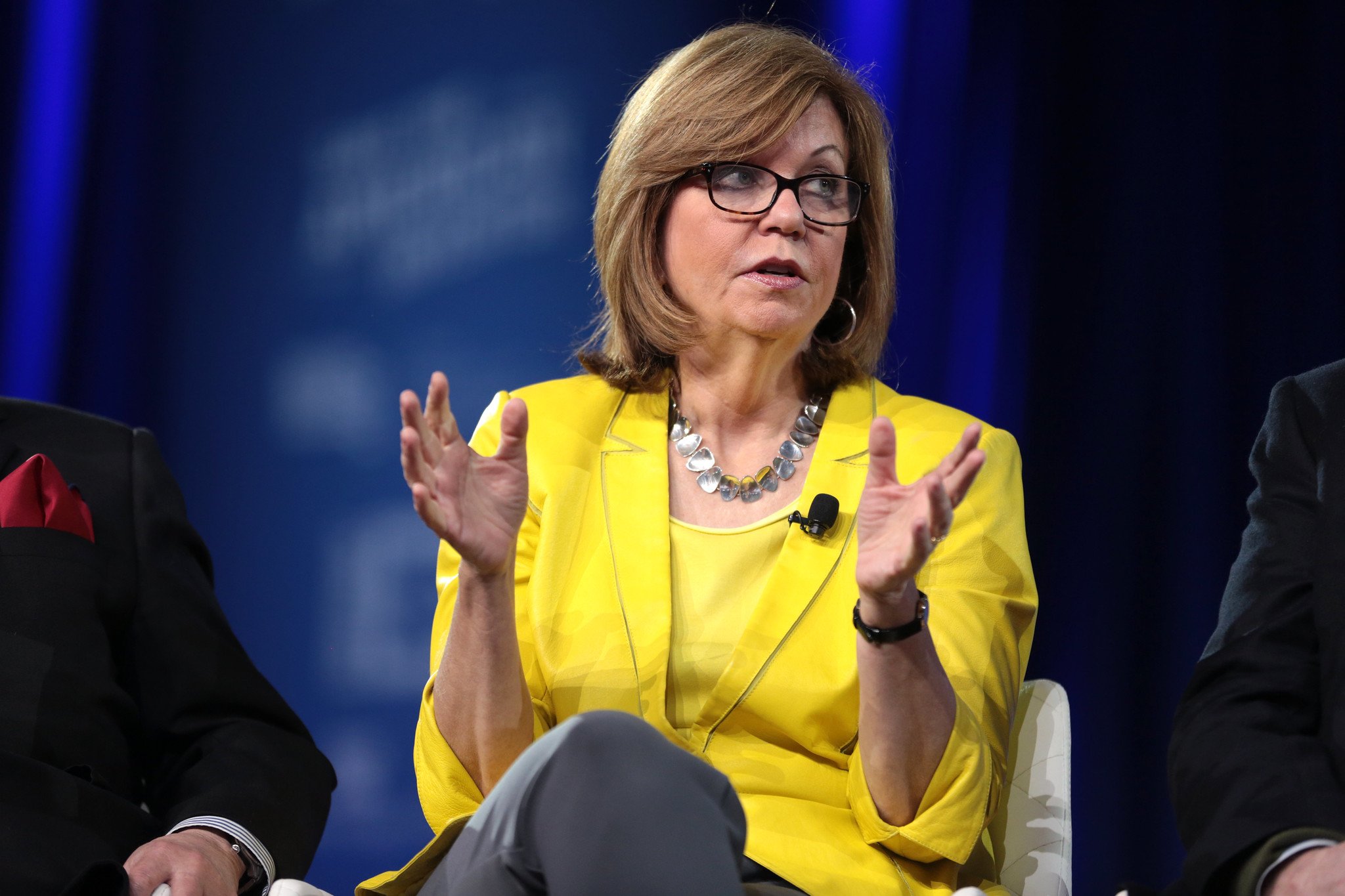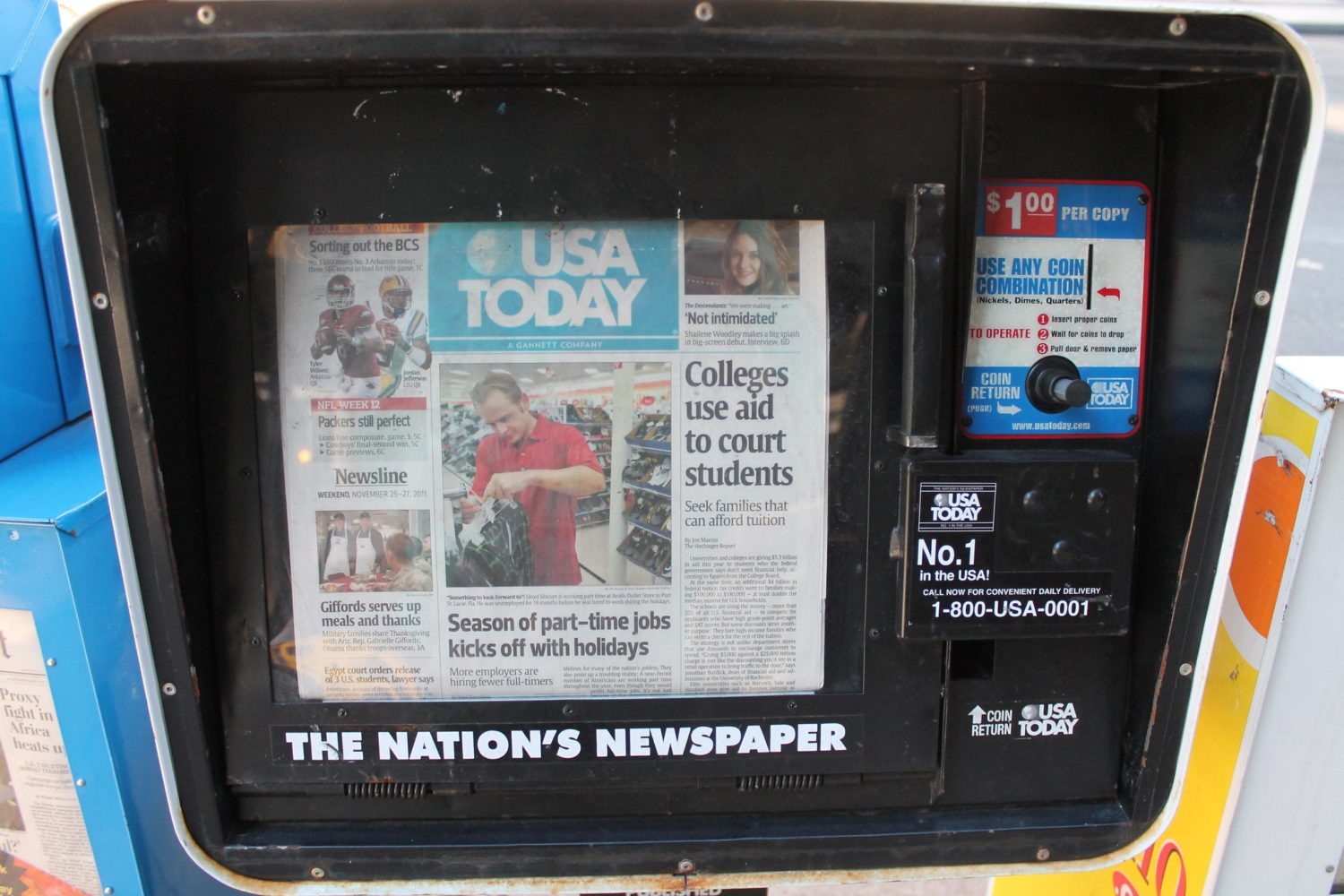Thursday’s congressional report on the expenses Medicare & Medicaid Services Administrator Seema Verma incurred on private communications consultants has been a subject of breathless Beltway coverage, with Politico reporting that Verma “spent more than $3.5 million on a range of GOP-connected consultants, who polished her public profile, wrote her speeches and Twitter posts, brokered meetings with high-profile individuals — and even billed taxpayers for connecting Verma with fellow Republicans in Congress.”
One particularly notable expense: A consultant named Pam Stevens was paid $2,933 for organizing a party at a journalist’s house. That journalist, USA Today Washington bureau chief Susan Page, also happens to be the moderator for the upcoming vice presidential debate featuring Verma’s onetime boss, Mike Pence. That led to calls for Page to step down from the debate.
But according to Page’s employer, she didn’t do anything wrong. And that nearly three grand Verma charged to taxpayers didn’t cover the party itself: Page did that on her own, paying a catering bill of $4,025. Page hosted the party in November 2018, USA Today spokesperson Chrissy Terrell tells Washingtonian, and says she received no payment or reimbursement from the federal government and was “unaware Centers for Medicare and Medicaid Services was being billed for the event.”
The event honored Verma and Heather Wilson, the US Secretary of the Air Force from May 2017-May 2019. In addition to the four grand, Page also paid “several hundred dollars for beverages and a bit more in tips for the wait staff,” Terrell says.
Stevens is the longtime organizer of the Girls’ Night events, Terrell says, which “are routinely hosted by well-respected journalists including Judy Woodruff, Norah O’Donnell, Rita Braver, Andrea Mitchell and others to honor significant accomplishments of both Democratic and Republican women.” The events, which Terrell says journalists are expected to pay expenses for themselves, “recognize the accomplishments of women and fall well within the ethical standards that our journalists are expected to uphold.” Stevens, she says, sent out e-vites and collected RSVPs.
Washingtonian makes a few cameos in the report, too: The report says Verma paid consultants “to pitch press articles that focused on Administrator Verma personally, beyond her role as CMS Administrator.” Stevens wrote an email in August 2018 about her plans that ID’d Washingtonian, along with more than a dozen other publications, in which she hoped to pitch a profile. She also said she hoped to land her on lists like our Most Powerful Women package. Another idea was to get Verma lunch with Washingtonian owner Cathy Merrill. Merrill tells me she didn’t reply to Stevens’s May 2019 email pitching the lunch, and that to her knowledge she’s never met Verma.
The Most Powerful Women list runs every other year. The list is compiled by the Washingtonian editorial staff, not its business staff, and aims to chronicle some of the most influential women in Washington. Listmaking is an imperfect science, but Verma, the administrator of an agency that touches millions of American lives, appears to fit the Most Powerful Women list’s requirements. Indeed, she was included on the list in 2017 and again in 2019. Verma seems to have authorized the use of taxpayer dollars to campaign for her to be part of a list she was already on.


















